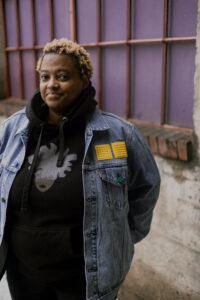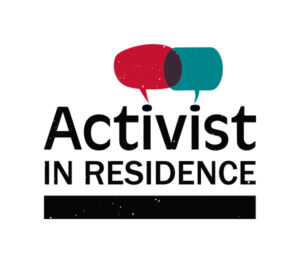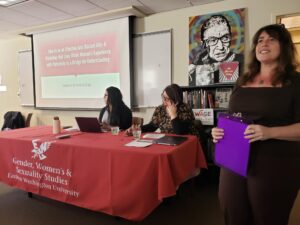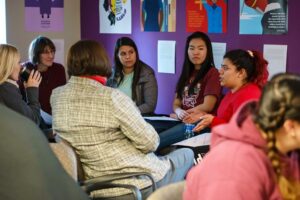The Gender, Women’s & Sexuality Studies Program and the Women’s and Gender Education Center are the lead organizers of the Activist in Residence (AiR) program on the EWU campus.
For a ninth year, AiR will bring an activist to campus to work with EWU students, staff, faculty, and community members during winter quarter of 2022.
Meet the 2022 Activist In Residence

Shantell Jackson is a multimedia artist and writer and is the Program Director with Spokane Arts. During her 17 years of service in higher education, Shantell focused on academic and multicultural programming and created programs to help students understand themselves and others. In her work with Spectrum Center, Shantell facilitates training on LGBTQ+ Safe Spaces, Identity 101 and Allyship. Shantell’s installations and performance art pieces explore the human condition both contemporarily and historically. All of her work aims to create dialogues across differences to build bridges and forge acceptance and healing.
View Poster
One registration will cover all Activist in Residence events you attend virtually. Those who attend four or more workshops/panels will receive an Activist in Residence certificate.
All workshops are highly participatory and interactive, with an emphasis on active practice and story sharing.
Jan. 26
What is activism and why should we discuss its overlap with healing? This session will help participants understand the context of this contemporary discussion. Who is healing and what are they healing from? Come learn about “Healing Justice,” and start to think about its application.
Feb. 2
Learn more about the history of race and activism. Where do these two ideas converge? What has the work been and where is it going? Why is race an important part of the conversation?
Feb. 9
Healing is essential for both the individual and the collective, especially for those impacted by systems of oppression.” In this panel, we ask “What does centering healing and survival look like and how can we foster spaces for healing?”
Feb. 16
We can learn to use our power to make a difference and to aid in the healing of historically marginalized communities. Sustained change can result from using our privilege as a tool for activism. However, power can also lead to negative changes when we co-opt movements. Learn to recognize the difference and avoid harm.
Mar. 2
Participants will take all the knowledge and themes discussed during this program and think about long-term applications as activists, allies, and community leaders. This will be an opportunity to learn from experienced community leaders and to be introduced to strategies and practices that have been successful in fostering both individual and collective healing.






